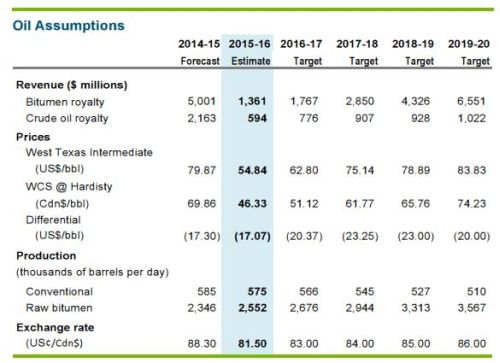On March 26, 2015, the Minister of Finance and the President of the Treasury Board, the Honourable Robin Campbell, presented Alberta's 2015 Budget - notably, revealing very few direct implications for the Oil & Gas Industry. This blog focuses on areas of interest to persons involved in the Oil & Gas sector and is not intended to provide a comprehensive overview of the Budget.
Brief Overview of the 2015 Budget
The 2015 Budget is focused on mitigating the current revenue gap with responsible spending, a shift in the revenue structure, and reliance on the contingency account. The price of Alberta's public services will be brought in line with the national average, in part by implementing a user pay philosophy through a Health Care Contribution Levy, increased fees for land titles and motor vehicle services, and increased fines for traffic violations. Alberta will continue to boast Canada's lowest overall taxes, holding constant corporate tax rates and personal income tax rates for individuals with taxable income below $100,000, but increasing tax on fuel, tobacco and liquor.
Implications for the Oil & Gas Industry
While the Budget itself will not directly impact the Oil & Gas industries, it raises three points of interest to persons involved in the Oil & Gas sector.
- No changes to corporate income tax, the oil and gas royalty structure, or incentives for research and development.
- Continually decreasing reliance on non-renewable resource revenue.
- Insight into Alberta's forecasts and the factors that form the basis for those forecasts.
Direct Monetary Implications
The 2015 Budget does not make any changes to the corporate tax rate or the current oil and gas royalty structure and as a result, the Budget should not have any direct implications on corporations in the industry. There is also no mention of incentives for corporate-level research and development.
Reduced Reliance on Non-renewable Resource RevenueIn an effort to manage the inevitable revenue volatility associated with a resource dominated economy, the government is implementing a revenue structure that will have less reliance on resource revenue and fund a higher proportion of programs and services from taxes and user fees.
Not only is Alberta reducing its reliance on resource revenue in the short-run out of apparent necessity, but even as Alberta's revenue stabilizes, the government plans to aggressively continue reducing reliance on that revenue to support program spending. By 2019-20, the government projects that only 50% of such revenue to be used for budgeting purposes, leaving the other 50% for investment in infrastructure, reduction of debt and savings.
Alberta is broadening its revenue base by introducing a long term plan to reduce reliance non-renewable resource revenue. Not only does the Budget reduce reliance during this economic downturn, but the plan contemplates continued reduction and sustained diversification.
Alberta Forecasts
Alberta's revenue forecast is based on the West Texas Intermediate oil price (WTI), which averages US$54.84\bbl in 2015-16, $62.80 in 2016-17 and just under US$84\bbl by 2019-20. The government also references the Western Canadian Select price (WCS), a benchmark price for heavy oil (bitumen), noting that it has not declined as dramatically as WTI, which has positively impacted revenue. However, Alberta forecasts an expanded differential due to projections of increased production, more projects and expanded projects, and insufficient access to Texas refineries and coastal ports. The following chart shows the figures used for the price, production and revenue forecasts in the Budget.
Alberta Government Oil Assumptions and Forecasts 2014-20

Source: Alberta Government, Fiscal Plan - Budget 2015
Alberta expects prices to rebound in the second half of 2015 as supply is lowered due to less drilling in North America, reduced investment elsewhere and production disruptions in war-torn regions, while demand continues to pick up. The government cited the following as assumptions (in addition to those listed above) which have factored into its price forecasts: economic growth in disparate regions around the world, pipeline or refinery outages, storage and speculative market activities by traders, investment and drilling decisions by producers, economic sanctions, OPEC market-manipulation and simple weather-related production disruptions.
Final Thought
While the 2015 Budget was largely silent on matters affecting the Oil & Gas industry in the short term, its progressive revenue plan, forecasts and assumptions provide some insight into the future of Alberta's economy and the potential for changes to those matters in the future.
The content of this article is intended to provide a general guide to the subject matter. Specialist advice should be sought about your specific circumstances.


